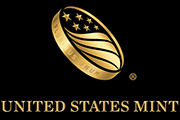Buy or Find?
Should you buy coins for your collection, or is it better to find them? You certainly can do either - or both.
The combination approach can be a good way to enhance your collection. For example, as the new coins in the 50 State Quarters® Program are released into circulation (five per year from 1999 to 2008), you can save coins for each state as you find them in your change. In addition, you also may want to purchase special collectibles related to the program, such as proof sets, uncirculated sets or first-day coin covers.
What if you have decided to collect coins from a certain year, but you are having trouble finding them? Then, you may want to purchase the hard-to-find coins from a coin dealer or another collector, adding depth and value to your collection.
Here are some sources to build your collection (the United States Mint does not recommend, regulate or endorse individual providers of goods or services):
- Your local bank.
- Purchase rolls of coins to search through.
- Collectors and coin clubs.
- Trade or buy from other collectors, either privately or at coin clubs.
- The United States Mint.
- Purchase coins directly from the United States Mint's catalog, which is also available online at catalog.usmint.gov.
- Coin dealers.
- Buy or trade with reputable coin dealers. You can try using the following venues. You may want to ask an experienced collector for dealer referrals.
- Coin shows.
- Here you can shop from several dealers at once. The selection at coin shows will be much better than at most individual shops, and the prices will be more competitive.
- Mail order.
- Many dealers sell coins through the mail. Check the numismatic publications for their ads. Make sure the dealer has a reasonable return policy before ordering, and examine the coins carefully on receipt to ensure that they're satisfactory.
- Buy online.
- Hundreds of dealers - including many conventional mail order advertisers - offer coins on the Internet. Again, make sure the dealer has a reasonable return policy before ordering, and examine the coins carefully on receipt to ensure that they're satisfactory. And use your good judgment!
- Watch out for scams.
- Be wary of disreputable companies.
- Auctions.
- The rarest and most expensive coins often are available only through major auction houses. In addition, many collectors now sell coins on auction Web sites. (As with online dealers, make sure the seller has a reasonable return policy and examine the coins carefully upon receipt to ensure that they're satisfactory.) Note: It is not uncommon for auction bids to surpass prices of comparable coins sold in other venues. It's a good idea to check prices in shops, mail-order ads and on other Web sites in advance. Then, to avoid overpaying, limit your bids to the market-value prices you've found.
- Flea markets, antique shows and craft fairs.
- Although they are not primary sources, sometimes coins can be found at these events. Because there is less competition for the seller and many potential buyers, prices may be inflated. In addition, sometimes these venues are used to move problem coins. Use caution and common sense when buying at these events.
